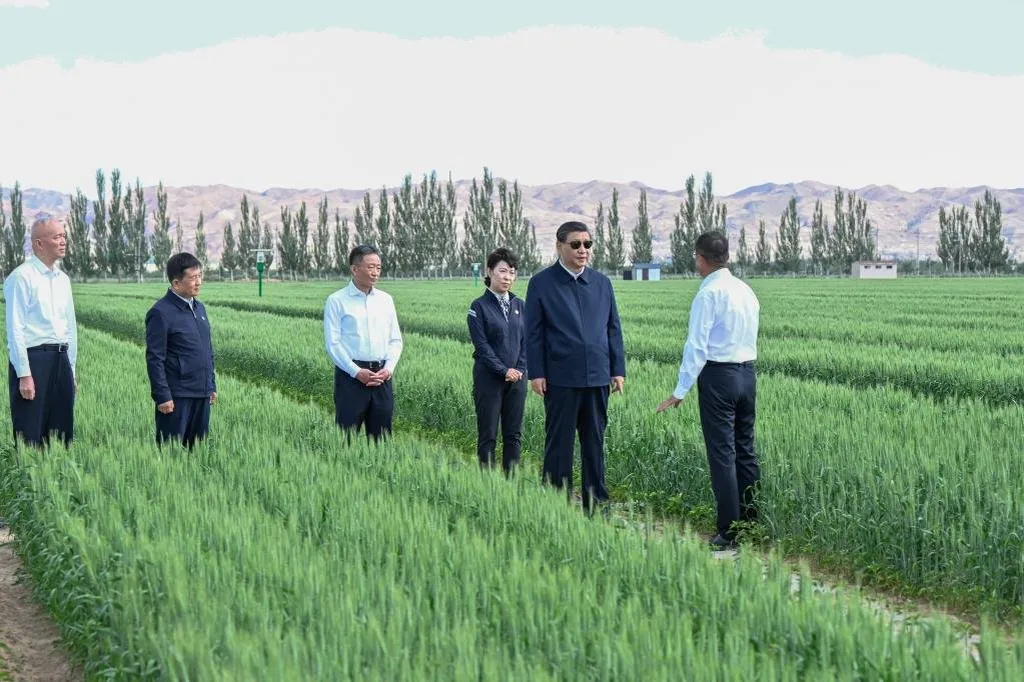In the heart of China’s arid northwest, where soil salinization is worsening due to climate and irrigation practices, a new study offers a glimmer of hope for farmers battling saline-alkali stress. Researchers have developed an innovative hydrogel that could significantly boost crop yields and mitigate the effects of salt stress on vegetables like spinach.
The study, led by Yinhua Wang from the College of Resources and Environment at Gansu Agricultural University, explores the effects and mechanisms of Attapulgite Clay-g-(AA-co-AAm) Hydrogel (ACH) in alleviating saline stress in spinach. The research, published in the journal ‘Plants’, reveals that ACH has a loose, porous structure that improves with the addition of Attapulgite Clay, providing a robust foundation for stress mitigation.
The results are promising. Under severe salt stress, 0.2% ACH increased leaf area by 91% and leaf weight by 95.69%. Even under mild alkaline stress, the same concentration of ACH boosted leaf area by 46.3% and leaf weight by 46.21%. The hydrogel also showed remarkable results in severe mixed salt–alkali stress, increasing root weight by 49.83% with a 0.4% concentration.
Physiologically, ACH works wonders. It reduces proline and malondialdehyde (MDA) content while increasing soluble sugar content and antioxidant enzyme activity. “ACH mitigates the adverse effects of salt–alkali stress by coordinately modulating spinach’s growth, physiological metabolic processes, and ion balance,” Wang explains.
The implications for the agriculture sector are substantial. Soil salinization affects over 50 million hectares of arable land in China alone, restricting sustainable development and impacting crop yields. This hydrogel could be a game-changer, offering a practical solution to enhance crop resilience and productivity in saline-alkali soils.
Looking ahead, this research could shape future developments in agritech. The hydrogel’s ability to regulate ion balance and physiological processes opens new avenues for crop protection and yield enhancement. As Wang notes, “This synergistic regulatory effect ultimately contributes to sustaining high yields of spinach.”
In a world grappling with climate change and food security challenges, innovations like ACH are crucial. They not only address immediate agricultural needs but also pave the way for more sustainable and resilient farming practices. The study’s findings offer a beacon of hope, demonstrating how science and technology can work together to overcome some of the most pressing challenges in agriculture.

